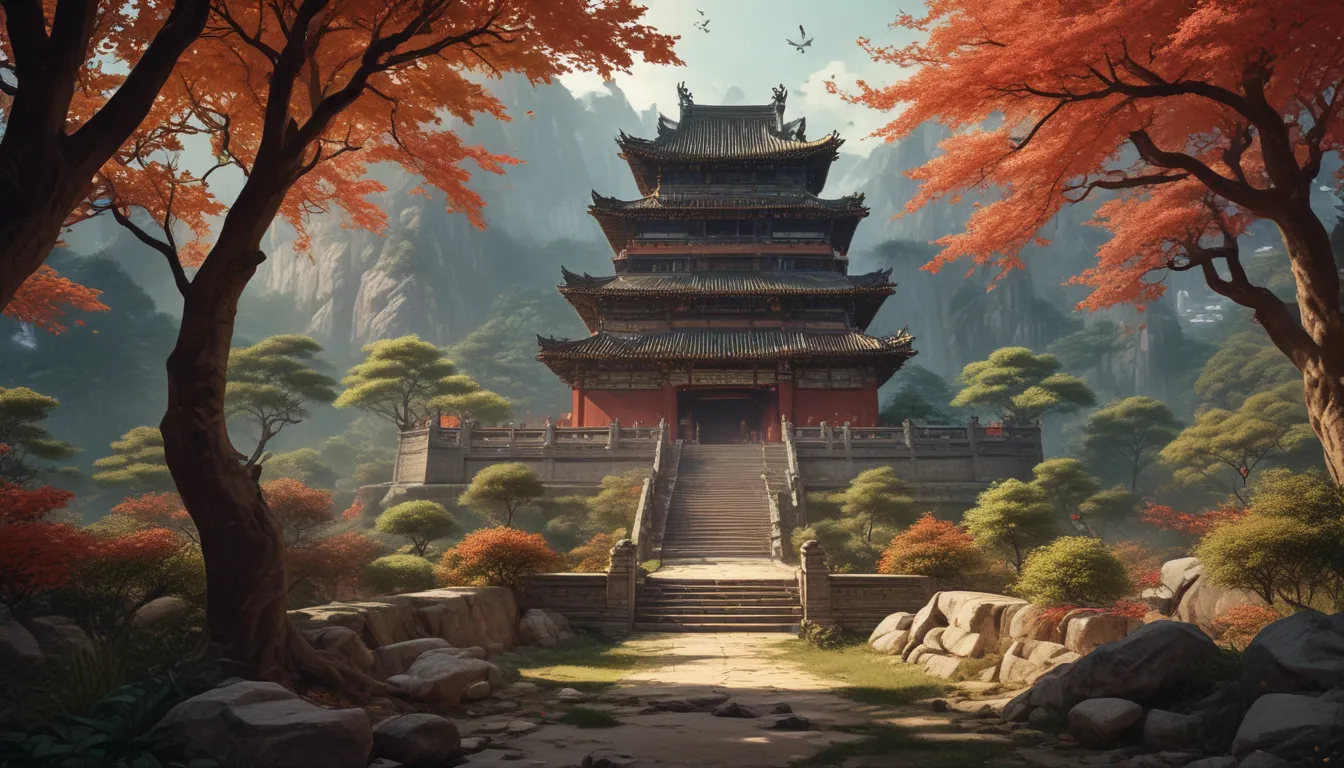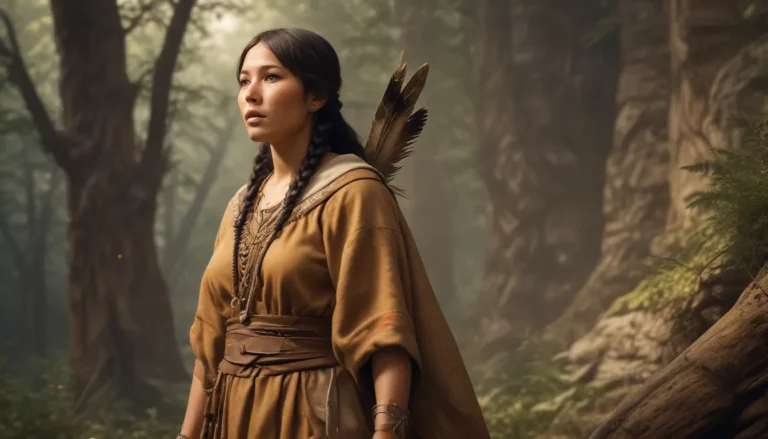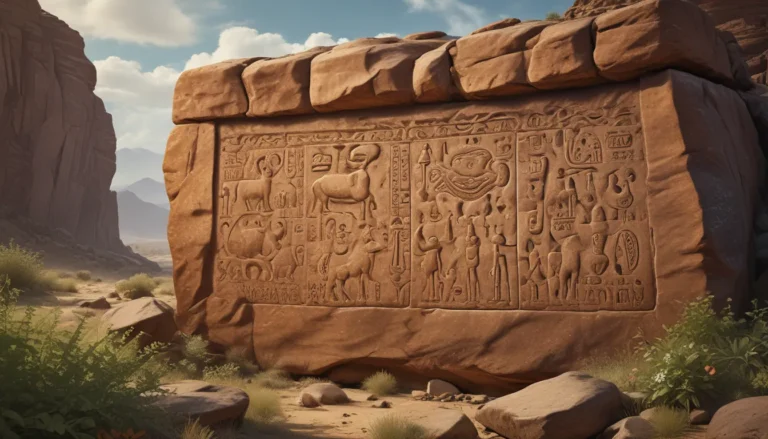The images in our articles may not match the content exactly. They are used to grab your attention, not to show the exact details in the text. The images complement the text but do not replace it.
Welcome to a journey through the captivating world of Ancient China, a civilization that has shaped history with its remarkable inventions, artistry, and philosophies. From the awe-inspiring Great Wall to the intricate Terracotta Army, China’s legacy is a treasure trove of wonders waiting to be discovered. Whether you’re a history enthusiast or simply curious about the past, these 33 fun facts about Ancient China are sure to spark your interest and leave you in awe of the ingenuity and spirit of this ancient civilization.
Unveiling Ancient Wonders
Let’s dive into the rich tapestry of Ancient China’s legacy, starting with some of the most iconic and awe-inspiring marvels that have stood the test of time.
The Great Wall of China: A Marvel of Ancient Engineering
The Great Wall of China, often hailed as one of the world’s most iconic landmarks, stretches over 13,000 miles across the Chinese landscape. Contrary to popular belief, the Great Wall is not visible from space with the naked eye. Its construction, spanning various dynasties, was a monumental feat of architectural and military prowess, built to safeguard Chinese states and empires from invasions and raids.
The Terracotta Army: Guardians of the First Emperor
Discovered in 1974 in Xi’an, the Terracotta Army is a breathtaking testament to ancient craftsmanship and devotion. Positioned around the tomb of Qin Shi Huang, China’s first emperor, each soldier in the Terracotta Army boasts unique facial features, hinting at the possibility that they were modeled after real individuals. These clay warriors were intended to protect the emperor in the afterlife, showcasing the profound beliefs and artistry of Ancient China.
Chinese Philosophy: Influencing Hearts and Minds
Chinese philosophy has left an indelible mark on history, shaping culture, politics, and society for centuries. Confucianism, Taoism, and Legalism are among the influential schools of thought that have guided the Chinese people. Confucius, a revered philosopher, emphasized the significance of morality, family loyalty, and respect for elders, laying the foundation for ethical conduct in Chinese society.
The Trailblazing Spirit of Ancient China
Ancient China was a cradle of innovation, pioneering inventions that have profoundly impacted the world we live in today. Let’s delve into the remarkable contributions that have shaped global culture and technology.
The Invention of Paper: Revolutionizing Communication
One of Ancient China’s groundbreaking inventions was paper, credited to Cai Lun during the Han Dynasty. Before the advent of paper, Chinese scribes wrote on bones, turtle shells, and metal plates, which were cumbersome and lacked portability. The creation of paper revolutionized how information was recorded and disseminated, paving the way for the spread of knowledge and ideas.
The Silk Road: Bridging Continents and Cultures
The Silk Road, an ancient network of trade routes connecting China to the Mediterranean, was a gateway for the exchange of goods, ideas, and cultures. While silk was a prized commodity traded along these routes, the Silk Road facilitated the import and export of an array of products, including spices, tea, gold, and exotic animals. This vibrant exchange not only enriched economies but also fostered cultural exchanges that transcended borders.
Chinese Cuisine: A Gastronomic Tapestry
Chinese cuisine is celebrated for its diversity and rich flavors, reflecting regional nuances and culinary traditions. The concept of “Yin and Yang” is integral to Chinese cooking, emphasizing the balance of flavors and ingredients to create harmonious dishes. From steaming dumplings to savory stir-fries, Chinese cuisine offers a delightful exploration of flavors and textures.
Ancient Chinese Medicine: A Holistic Approach to Wellness
Traditional Chinese Medicine (TCM) boasts a history spanning over 2,000 years, focusing on restoring balance and harmony within the body. Practices such as acupuncture, which involves inserting fine needles into specific points to stimulate healing, and herbal medicine, using natural ingredients to treat ailments, exemplify the holistic approach of TCM. This ancient healing system continues to resonate with modern seekers of wellness and vitality.
The Enduring Legacy of Ancient China
As we unravel the layers of Ancient China’s history, we uncover a tapestry woven with innovation, artistry, and wisdom that resonate across time and space. The timeless legacy of this ancient civilization continues to inspire curiosity and admiration, serving as a beacon of ingenuity and resilience. Whether through its remarkable inventions or profound philosophies, Ancient China’s influence endures, shaping the world in ways both profound and enduring.
Exploring the Echoes of the Past
To delve deeper into the wonders of Ancient China, let’s address some frequently asked questions that shed light on key aspects of this captivating civilization.
Frequently Asked Questions About Ancient China
Q: What inventions from Ancient China are still in use today?
A: Ancient China’s legacy of inventions continues to impact modern life in significant ways. From paper and the compass to gunpowder and movable type printing, these innovations have left an indelible mark on society, revolutionizing communication, navigation, warfare, and information dissemination.
Q: How did Ancient Chinese culture view dragons?
A: In Ancient Chinese culture, dragons were revered symbols of power, good luck, and authority. Emperors often associated themselves with dragons, attributing divine attributes to these majestic creatures. Dragon dances, still performed today, celebrate the mythical creature’s role in bringing blessings and warding off malevolent forces.
Q: Can you name a famous Ancient Chinese philosopher?
A: Confucius stands out as one of the most prominent philosophers to emerge from Ancient China. His teachings, centered on ethics, family values, and social harmony, have had a profound impact on shaping Chinese society and influencing moral conduct and governance.
Q: What was the significance of the Silk Road in Ancient China?
A: The Silk Road played a pivotal role in connecting East and West, facilitating trade and cultural exchanges that spanned continents. Beyond the exchange of goods like silk, tea, and spices, the Silk Road served as a conduit for the spread of ideas, religions, and technologies, fostering cross-cultural interactions and mutual discoveries.
Q: How did Ancient Chinese medicine contribute to healthcare practices?
A: Ancient Chinese medicine introduced innovative healing modalities such as acupuncture and herbal medicine, emphasizing the balance of vital energy (Qi) within the body. These holistic approaches to wellness continue to resonate with individuals seeking natural and integrative methods for promoting health and healing.
Q: What role did the Great Wall of China play in Ancient Chinese history?
A: The Great Wall of China served as a formidable barrier against invasions and raids, symbolizing the strength and determination of the Chinese emperors to protect their realm. Beyond its defensive functions, the Great Wall stood as a testament to China’s architectural ingenuity and historical legacy, captivating visitors with its grandeur and scope.
Q: How did Ancient Chinese writing evolve over time?
A: Ancient Chinese writing originated with pictographs, evolved into complex characters, and eventually developed into the script forms used today. The art of calligraphy, revered as an expression of beauty and emotion, transformed writing into a revered practice that captured the essence of Chinese culture and heritage.
Embracing Ancient China’s Timeless Wisdom
As we conclude our exploration of Ancient China’s marvels, we are reminded of the enduring legacy of innovation, artistry, and philosophy that continue to inspire and captivate audiences around the globe. From the invention of paper to the intricate art of calligraphy, Ancient China’s contributions encompass a vast spectrum of human achievement, leaving an indelible mark on history. As we reflect on the echoes of the past and embrace the wisdom of this ancient civilization, we honor the spirit of ingenuity and resilience that defines the legacy of Ancient China.






